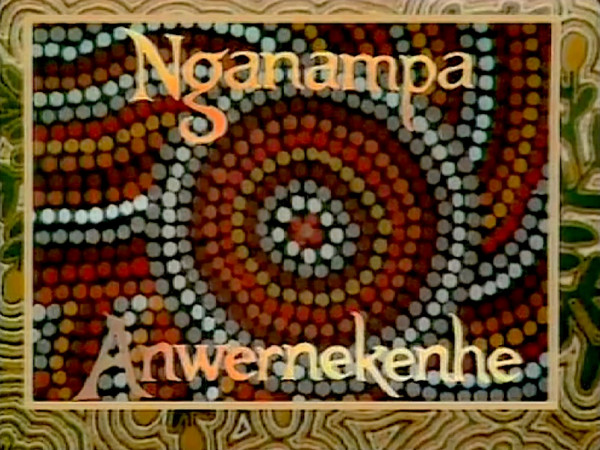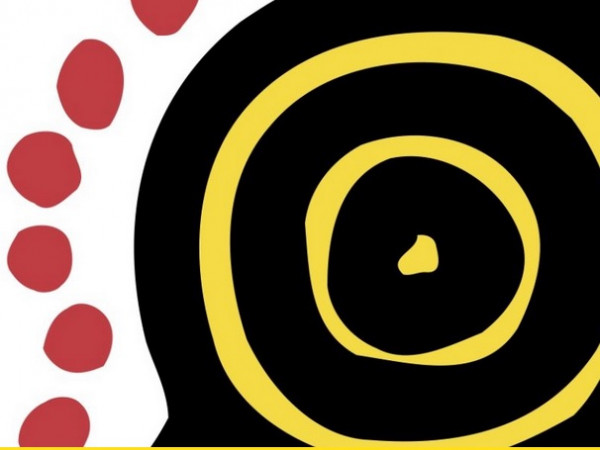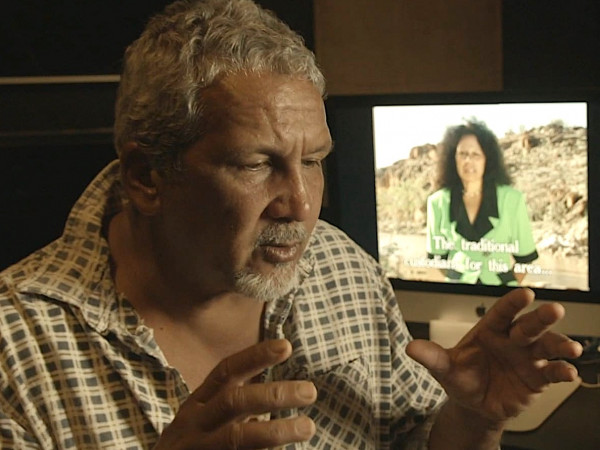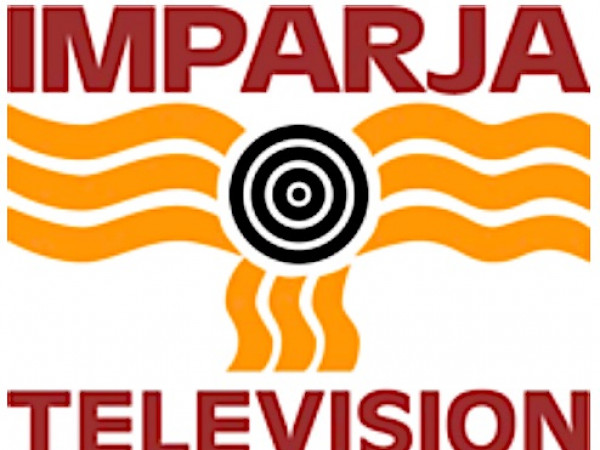Rosie Kumalie Riley
“The stories are out there…”
I remember when we first heard about Satellite Dreaming. To me, it was a bit vague. And I thought, oh, not very, you know, satellite orientated, I was thinking, how are we going to…what or say things? What is on satellite? That satellite was nothing compared to what I was used to. We were in the middle of Nganampa Anwernekenhe, the programmes, at the same time producing our own Nganampa language and culture programmes, and Satellite Dreaming was just like a …something that I couldn't visualise, that's going to be…you know, that's going to become a reality. And, uh, so I thought we could, I could see a lot of my… experience, my, you know, my story as part of this. So…knowing that it was a production, and the film crew are making up the video, Satellite Dreaming was… You know, to me, as a language speaker and Language Coordinator, speaker at that time, it was like something different from what we … what we're used to doing in our programmes in Nganampa Anwernekenhe. In Nganampa Anwernekenhe we went out to meet and meet and get stories and get to know the families, and we were liaising with a lot of people. With Satellite Dreaming, it was just a… it wasn't a reality for me as an indigenous person. And then, so I thought yeah, I had to make this. Even if it's not a reality. Well, let's make it a reality. Let's make it happen.
But then and seeing the crew and seeing the production of Satellite Dreaming did, did become a reality to me in the end. And …when I saw the movie Satellite Dreaming It was very… it was awesome. I didn't think it was going to be like this at all.
Nganampa Anwernekenhe came to us in a very… in a new era. We're now, we're now broadcasting our language and culture on, through technology, so people can see and hear the language, the stories of our people from all tribal areas, you know, in Northern Territory and…which was never done. And CAAMA became a reality, because we could hear and hear this, you know, we can hear the language on CAAMA for… the very first time that language and language were used as a tool to get, you know, transmit to our people about life in general, and health and news, and language programmes that people enjoyed listening to. And then, coming to a television, it was… like looking at a changing face of using that as a tool for our language and keeping it strong and preserving it and getting all the stories and songs and dances up…The elders in those days are very remote… I remember a lot of those. And …and we now have archived and preserved, which we didn't have that before. Through colonisation a lot of those things happened, but it was never recorded or preserved - unless Strehlow, Strehlow came through and recorded… documented a lot of our people's journeys or songs or dances or language and phonetics, and spellings - linguistically, looking at it. And that became a reality.
And now we have interpreters, interpreters and translators, but there's still more, more to be done. Not everybody can read and write Arrernte. You have to train into it. get training for it, so you can be a linguist, you can be an interpreter. You need to…we need to learn about legality, if we… we need to go to the courthouse and represent our people, because courthouse jargons are very different from a lot of our people. And people are encouraged to use just simple English, so it's easier to translate and easier to transmit to …to our elders, or to our young people, or our people that are you know, that are be[ing] in court, that they do not understand …the legal jargons that are used… that type of language that is used in court.
I would have studied teaching after that. Yes. Because that was, that is what is needed in our… education system, because during that time as well, and we started bilingual studies. And then I think the government, or the board of the government decided not to, not to teach our languages in … class. And what we decided was.. we need our language to be taught in classrooms. So, children could keep their language strong and grow up, and grow up strong in both cultures.
And to make sure that the curriculum and the resources are made appropriately to go inside with the Western system – but it’s, it's all about the same… when we look at the Western system, … the Western curriculum and our language curriculum, we can easily incorporate them now.
I have retired from my education, but I'm still very much involved in education, education here and… I’ve started up my own Arrende consultancy office, business. I'm the sole trader of the business. And I'll make sure that I, I have now gone further into tourism, educating the tourism and also offering cultural awareness to organisations. People come and ask me, they want to, they want to communicate or want to get to know the Aboriginal… with the people that they work with, indigenous people. And they want to know how they can best work together. And they recognise and acknowledge each other's differences in work places. And there are schools, or people that want interpreting, and translate… translating done - mainly the government…
About our health. About education. About anything that they needed translated and interpreted. And also about, also about keeping that culture and language strong, to our young young children. Taking them out on excursions. Going out with families. And I still fall back, I still fall back on my elders to make you know… they, they assess us. They are professors. The assess us about we are doing and saying and behaving appropriately while we’re doing things …culturally, amongst other people or in meetings. And also, now I'm doing a, at Batchelor Institute, at Desert Knowledge, I am now, I am now working …you know, working as a lecturer, too, in a programme - it's called Arrernte Online Programme Teaching.
…using that, using technology as a tool, then and now, right to this day … we can hear our language. We get the messages out. And there's a lot of songs and a lot of songwriters came out with their language songs, with songs or, you know, stories and histories and. And now they are more into making it…young people are now more into a rap type of music in language, and reggae. And heavy metal is now a new thing with, you know, with these bands around here.
And it's also encouraging a lot of young songwriters to come up with their type of music, their type of messages or their type of language that they want to use and sing, and make it and make it enjoyable and for dancing and stuff like that in the next generation – because each generation changes in the way they use language. And now we can use language in a lot of our people, or a lot of our children are learning to read and write in their own languages.
… the children benefit from technology that they use… they use technology a lot these days. I didn't, I didn't grow up with technology in my hand. I learnt by observing. I learnt by, by listening, from my elders or from my family when I was small. But today we have many apps, we have Arrende app: phrases and words and vocabulary and things like that, on our now internet on… special apps, education apps. People, we didn't have that.
…the butterflies was a project in the Arrernte curriculum. And we posted, following that butterfly cycle. You know, I had a butterfly lays eggs and the eggs could turn into a cocoons and then come out as butterflies. We use that metaphor in our curriculum, you know, in our Arrernte curriculum.
…that was the Butterfly. We have a project that was funded by Bernard Van Leer from Netherlands. And we were, we were fortunate to have that funding from them. And they used to come and visit us and see how far we were at, and it was great, you know, because we wouldn't get that much money from Australia. Australia would never fund us. They're very tight with their money. But if you just give me, just give it a million dollars, we'll do our own thing and we'll, we'll do it. But we don't…we want to, we want to encourage our people to run it. But we have people, non-indigenous people - we want them to support us, us from behind, not up front. ‘Give us a go now. We can do it, you know….’ Language, Arrernte is like going back in time, our language. The stories are out there…




